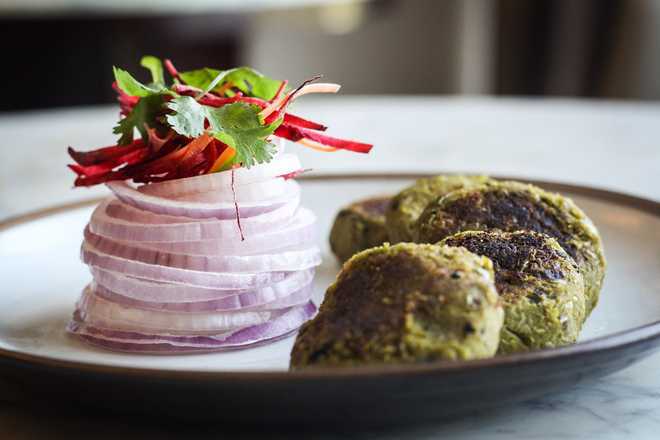Dine like royalty
Sheetal
Arcot has seen it all—from the Mughal ruler, Aurangzeb, who established his reign to keep the Carnatic region in his grasp or the rise of the Maratha Empire for a significant amount of time and then the British Raj. Arcot once was the capital of the Carnatic state, the land between Krishna and Cauvery rivers, but later it lost its significance and succumbed to be a part of the Vellore district. Having said that, it comes as a surprise that the royal culinary tradition lives on even after three centuries, all thanks to the Nawabs of Arcot who passed it on for 10th generations to maintain the grandeur of this rare Arcot cuisine.
The Nawabs of Arcot curated the unique cuisine with the availability of local ingredients. It is a strong fusion of Marathi and South Indian flavours with Mughlai or Hyderabadi cuisine as the predominant factor. Meat is used in large quantities. While preparing non-vegetarian dishes, the combination of the ingredients are given the utmost importance, for instance saffron works great with sea food like prawns; soya and fish works quite well, as told by Executive Chef Naveen Handa. Signature breads of the cuisine such as khamiri mirch roti, magzi naan and tandoori khatta kulcha will also interest the Punjabis to break from the tandoori and naan.
There is no absence of vegetarian food as well. There are spicy kebabs, ghee-laden desserts and not to miss out the steaming biryani. Veg starters, Nilofri seekh and paneer till tinka are different and delicious at the same time. In haldi paneer, raw turmeric was used to accentuate the taste. Many may perceive that dishes are heavy but the balance of nuts and stock is maintained to tickle your tastebuds.
The guest chef, Abdul Quddus, who is here for the food festival, Royal Cuisine of Arcot, in Saffron, the fine-dining restaurant at JW Marriott Chandigarh, was trained under the Ustaads, as they are called royal chefs of Amir Mahal, residence of the Nawab of Arcot. “While the original base of the cuisine is traditional, Awadhi or Nawabi recipes, the direct control of the Hyderabadi Nizam on the Carnatic Empire influenced their food, particularly in terms of lending the cuisine spice-heavy,” says Abdul. Imagine having a dish which has been passed on to tenth generations of the royal chefs.
Unlock Exclusive Insights with The Tribune Premium
Take your experience further with Premium access.
Thought-provoking Opinions, Expert Analysis, In-depth Insights and other Member Only Benefits
Already a Member? Sign In Now










